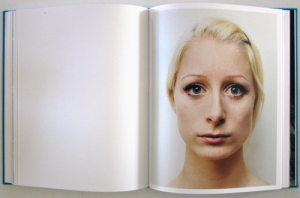September 17, 2011
Yale University – Connecticut
Reading, Questions and book signing.
Watchung Bookstore – 01/28/11
Moving Day
Welcome to the new home for my blog, next door to my website. After today, I won’t post to my old ‘wordpress.com’ site anymore. I know this site looks a little different. I’d love to hear what you think.
I have an exciting line-up of guest writers in the next month, including literary agent Molly Lyons on how to have the best relationship possible with your agent, Martin Kihn on writing “yet another non-fiction book proposal for a memoir about (yawn) a man and his dog,” and Donald Maas on inspiring in the reader a sense of awe. So subscribe asap (using the button at the right) — or bookmark it, or add it to your favorite sites. (Your subscription to the old site doesn’t automatically transfer.)
I’ve always intended this site to be for writers, about writing. And now that I’m starting fresh, I’m inspired to open it up even more. Let me know what YOU want to read about. More about the lit biz? More about books that inspire? More funny pieces? Shorter pieces? Longer ones? Send me your questions and ideas, and I’ll use them as prompts for posts — my own and others’. And if you want to contribute to the site — with a quote about writing that you love, an observation, an anecdote — just let me know. Let’s share our wealth of knowledge.
Thanks for sticking with me and growing my wordpress site so much. In the past year I’ve had nearly 100,000 visitors — pretty great, I think, for a little blog I started for fun …
Thirteen Tips for Actually Getting Some Writing Done
 Gretchen Rubin is the guru behind the phenomenally successful blog (and soon-to-be book) The Happiness Project. In this post she shares an inside glimpse at her process.
Gretchen Rubin is the guru behind the phenomenally successful blog (and soon-to-be book) The Happiness Project. In this post she shares an inside glimpse at her process.
One of the challenges of writing is … writing. Here are some tips that I’ve found most useful for myself, for actually getting words onto the page.
1. Write something every work-day, and preferably, every day; don’t wait for inspiration to strike. Staying inside a project keeps you engaged, keeps your mind working, and keeps ideas flowing. Also, perhaps surprisingly, it’s often easier to do something almost every day than to do it three times a week. (This may be related to the abstainer/moderator split.)
2. Remember that if you have even just fifteen minutes, you can get something done. Don’t mislead yourself, as I did for several years, with thoughts like, “If I don’t have three or four hours clear, there’s no point in starting.”
3. Don’t binge on writing. Staying up all night, not leaving your house for days, abandoning all other priorities in your life — these habits lead to burn-out.
4. If you have trouble re-entering a project, stop working in mid-thought — even mid-sentence — so it’s easy to dive back in later.
5. Don’t get distracted by how much you are or aren’t getting done. I put myself in jail.
6. Don’t fall into the trap of thinking that creativity descends on you at random. Creative thinking comes most easily when you’re writing regularly and frequently, when you’re constantly thinking about your project.
7. Remember that lots of good ideas and great writing come during the revision stage. I’ve found, for myself, that I need to get a beginning, middle, and an end in place, and then the more creative and complex ideas begin to form. So I try not to be discouraged by first drafts.
8. Develop a method of keeping track of thoughts, ideas, articles, or anything that catches your attention. That keeps you from forgetting ideas that might turn out to be important, and also, combing through these materials helps stimulate your creativity. My catch-all document, where I store everything related to happiness that I don’t have another place for, is more than five hundred pages long. Some people use inspiration boards; others keep scrapbooks. Whatever works for you.
9. Pay attention to your physical comfort. Do you have a decent desk and chair? Are you cramped? Is the light too dim or too bright? Make a salute—if you feel relief when your hand is shading your eyes, your desk is too brightly lit. Check your body, too: lower your shoulders, make sure your tongue isn’t pressed against the top of your mouth, don’t sit in a contorted way. Being physically uncomfortable tires you out and makes work seem harder.
10. Try to eliminate interruptions — by other people, email, your phone, or poking around the Internet — but don’t tell yourself that you can only work with complete peace and quiet.
11. Over his writing desk, Franz Kafka had one word: “Wait.” My brilliantly creative friend Tad Low, however, keeps a different word on his desk: “Now.” Both pieces of advice are good.
12. If you’re stuck, try going for a walk and reading a really good book. Virginia Woolf noted to herself: “The way to rock oneself back into writing is this. First gentle exercise in the air. Second the reading of good literature. It is a mistake to think that literature can be produced from the raw.”
13. At least in my experience, the most important tip for getting writing done? Have something to say! This sounds obvious, but it’s a lot easier to write when you’re trying to tell a story, explain an idea, convey an impression, give a review, or whatever. If you’re having trouble writing, forget about the writing and focus on what you want to communicate. For example, I remember flailing desperately as I tried to write my college and law-school application essays. It was horrible – until in both cases I realized I had something I really wanted to say. Then the writing came easily, and those two essays are among my favorites of things I’ve ever written.
Fear of the Blank White Page
 “The blankness of a new page never fails to intrigue and terrify me. Sometimes, in fact, I think my habit of writing on long yellow sheets comes from an atavistic fear of the writer’s stereotypic “blank white page.” At least when I begin writing, my page isn’t utterly blank; at least it has a wash of color on it, even if the absence of words must finally be faced on a yellow sheet as truly as on a blank white one. Well, we all have our own ways of whistling in the dark.”
“The blankness of a new page never fails to intrigue and terrify me. Sometimes, in fact, I think my habit of writing on long yellow sheets comes from an atavistic fear of the writer’s stereotypic “blank white page.” At least when I begin writing, my page isn’t utterly blank; at least it has a wash of color on it, even if the absence of words must finally be faced on a yellow sheet as truly as on a blank white one. Well, we all have our own ways of whistling in the dark.”
Memoirist Patricia Hampl, in an essay called “Memory and Imagination.”

